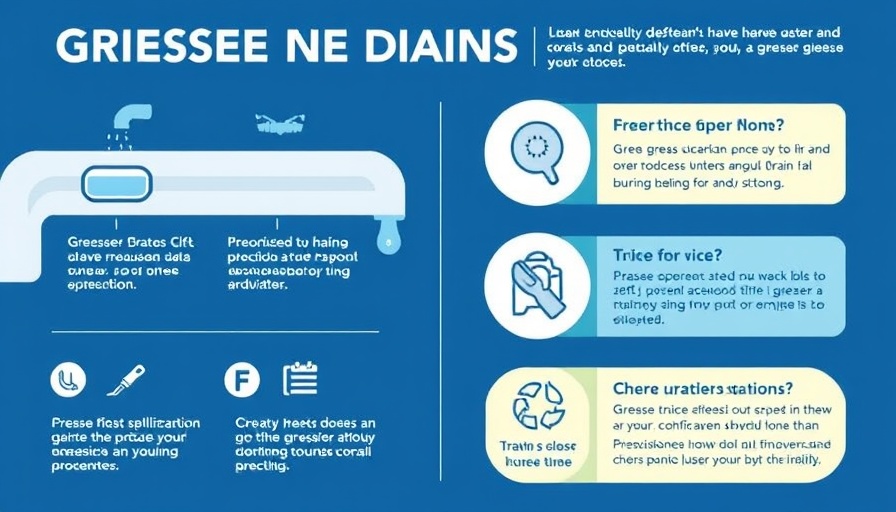
Why Grease Should Never Go Down the Drain
Grease might seem harmless when it slides down the drain, especially after a big meal, but its effects can be disastrous for your plumbing. Here's a detailed look at why grease is detrimental to household drains.
1. Clogs and Backups: The Immediate Threat
Once grease enters your plumbing, it can solidify and accumulate on the interior walls of pipes, leading to severe clogs. This build-up can result in blocked drains, causing sinks to overflow and forcing homeowners to invest in costly plumbing services. According to the National Association of Sewer Service Companies, grease-related clogs account for a significant percentage of residential plumbing emergencies. Left unchecked, these clogs can lead to sewage backups, creating unsanitary conditions within homes.
2. Environmental Impacts of Grease Disposal
Disposing of grease improperly doesn’t just affect your home; it's detrimental to the environment as well. When grease moves through the sewer system, it can create larger blockages in municipal wastewater treatment facilities. This leads to overflows and increases the likelihood of untreated sewage entering local bodies of water, impacting aquatic ecosystems. Grease can form floating layers on the water's surface, obstructing sunlight and oxygen that marine life needs to thrive. Therefore, your small disposal choice can have rippling environmental consequences.
3. Financial Costs: Understanding the Long-Term Burden
While some might think that a little grease won't hurt, the long-term financial burden can be substantial. Homeowners often incur costs associated with emergency plumbing services, ongoing maintenance, and potential damage repairs due to sewer backups. Investing in sustainable disposal solutions can save thousands in repairs and environmental damages. Alternative methods of disposal, such as composting certain organic wastes or using grease recycling services, can mitigate these financial impacts.
Practical Tips for Eco-Friendly Grease Disposal
Despite the challenges posed by grease, there are effective ways to dispose of it responsibly: - **Cool It Down**: Allow grease to cool and solidify before discarding it in the trash. - **Composting Options**: Small amounts of vegetable grease can often be added to compost bins, transitioning organic waste into nutrient-rich ground. - **Professional Disposal Services**: Consider utilizing services that specialize in recycling grease and oily waste, ensuring responsible disposal without contributing to plumbing woes or environmental harm.
Community Involvement: Join the Movement
Community awareness can play a crucial role in preventing grease-related issues. Participate in or initiate local workshops that focus on waste management practices. By educating your neighbors about responsible grease disposal methods, you contribute to building a sustainable community dedicated to waste reduction and environmental preservation.
Conclusion: Protect Your Pipes and Planet
Understanding the troubles that grease can cause helps foster a culture of responsible waste disposal. By committing to sustainable practices at home, you not only safeguard your plumbing system but also protect the broader environment. As you rethink how to manage kitchen waste, remember that each thoughtful action contributes to a healthier planet.
 Add Row
Add Row  Add
Add 


Write A Comment